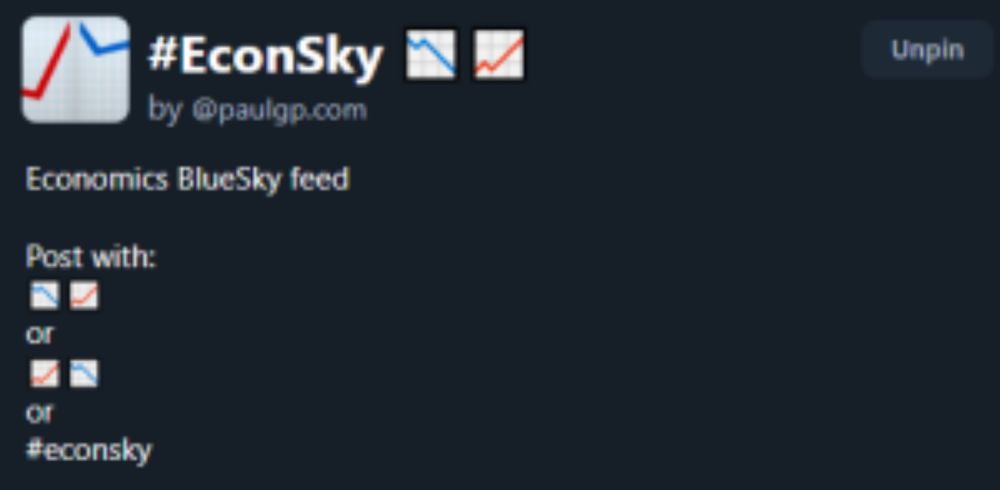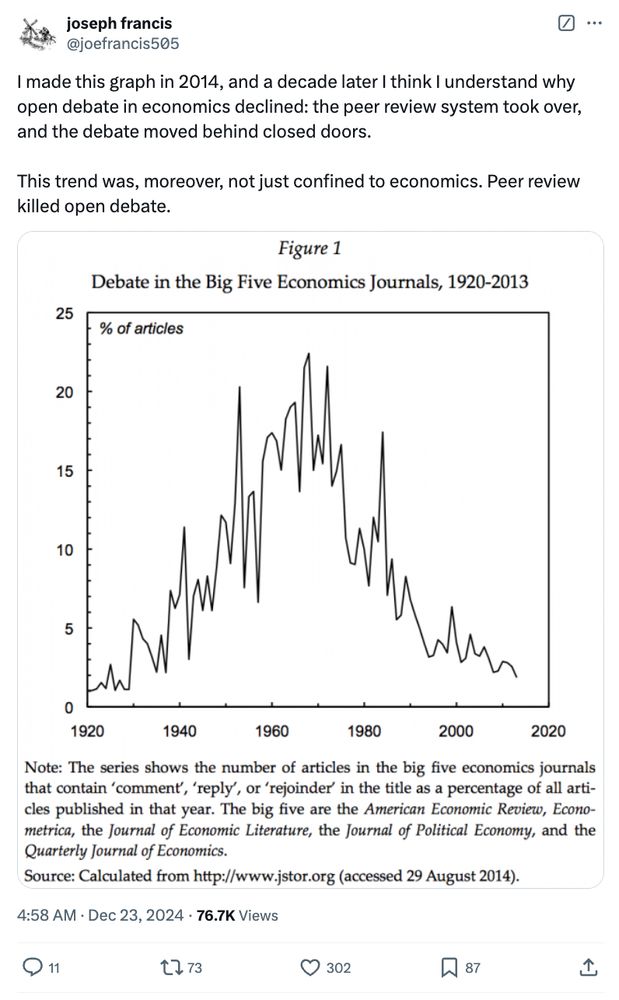Markus Rieger-Fels
@riegerfels.bsky.social
490 followers
330 following
11 posts
Economist @ Institut für Mittelstandsforschung (IfM) Bonn, Research on topics concerning the German Mittelstand, risk, and insurance.
Posts
Media
Videos
Starter Packs
Reposted by Markus Rieger-Fels
Aaron Sojourner
@aaronsojourner.org
· Sep 11

For Bluesky-Curious Econ Lovers - Aaron Sojourner
This Quick Start guide aims to help econ lovers easily join Bluesky’s growing economics community. The Bluesky User FAQ covers generic basics, like how to start an account. This guide orients you to e...
aaronsojourner.org
Reposted by Markus Rieger-Fels
Reposted by Markus Rieger-Fels
Reposted by Markus Rieger-Fels
Reposted by Markus Rieger-Fels
Reposted by Markus Rieger-Fels
Riley Acton
@riacton.bsky.social
· Nov 12
Reposted by Markus Rieger-Fels
Reposted by Markus Rieger-Fels
Reposted by Markus Rieger-Fels
Ben Golub
@bengolub.bsky.social
· Sep 26
Reposted by Markus Rieger-Fels




